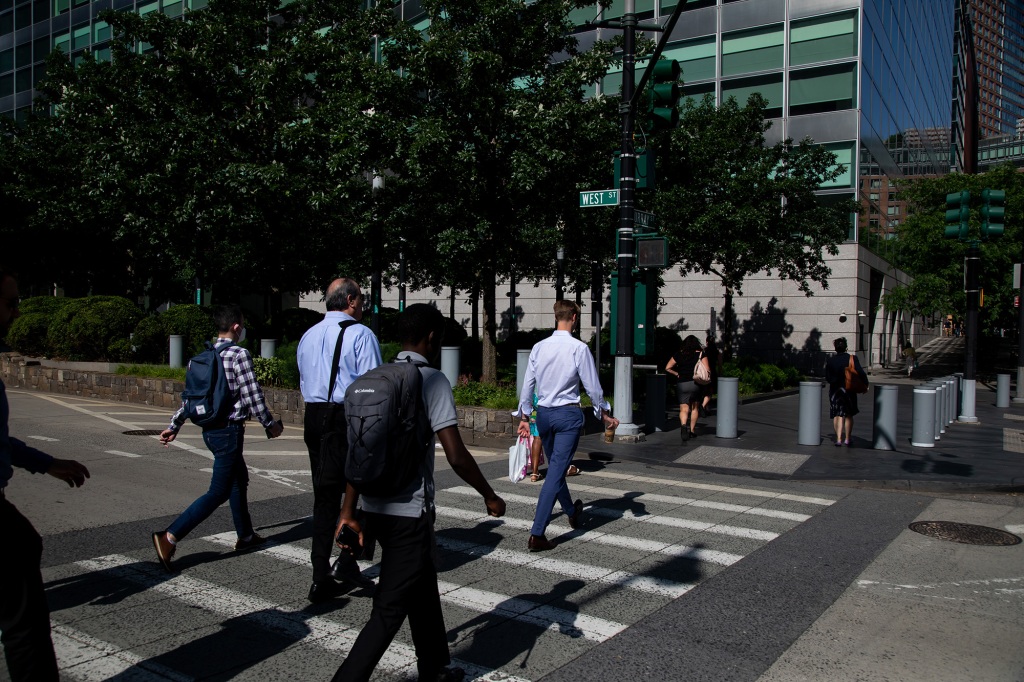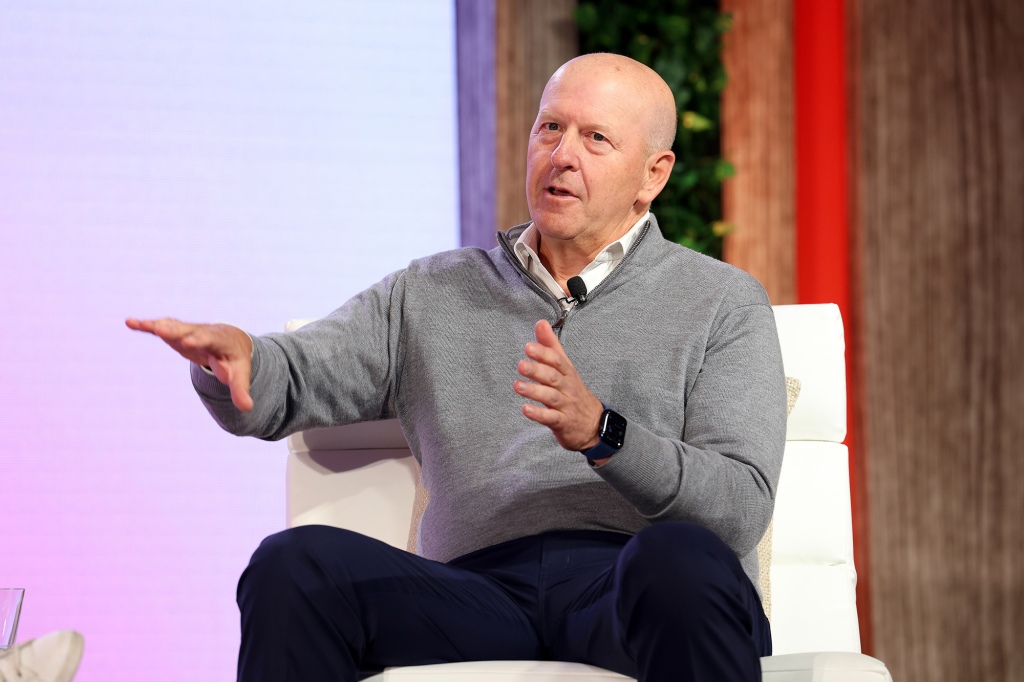Banks pressure workers to return full time as summer recedes
Judgment Day has arrived over whether workers at the major Wall Street firms will heed edicts to return to the office five days a week after the Labor Day weekend.
While there haven’t been any formal decrees at the major banks demanding people return to their desks full time, insiders at JPMorgan, Morgan Stanley, and Goldman Sachs say “soft messaging” by the CEOs makes it clear people need to be back in their seats.
Attendance may not yet be mandatory as the bleary-eyed bankers step off the Hamptons Jitney and return to the office Tuesday, but the pressure for deals makes work-from-home or hybrid schedules no longer optional or optimal, the insiders said.
“Companies use a bank for a seminal event — if your bankers aren’t showing up to their office to work on deal your bank loses credibility,” one banking insider said. “We have clients that have said they won’t work with us if we’re not in the office five days a week.”
The decline of investment banking revenue this year means the competition for business is fierce between heavyweight firms — and one shorthand way of signaling to current and future clients they take the work seriously is by requiring employees to be in the office, a source said.

In fact, some bankers believe demanding people return to work full time may be the best marketing campaign to lure in clients.
“It’s a bad look if you’re working on an important deal with a client and you’re Zooming in from your home in the Hamptons,” the source said.
Smaller firms, however, may be inclined to continue “tiptoeing” around the thorny issue.
One executive at a European-based bank told The Post his firm is being cautious about using “political capital” and that it’s foolish to demand young employees hang around the office when there’s no work to do.

“The IPO market is dead, the LBO [leveraged buyout] market is dead, SPACs are dead … why lay out political capital when there’s nothing to do?” the exec said.
But CEOs at top banks — where the acceptance rate to get a coveted job is as low as 1.5% — feel they can finally lay down the law. The likelihood of a long-lasting recession coupled with the recent waves of layoffs have shifted the balance of power to employers.
In a memo sent last month, Goldman Sachs told workers it planned to lift all COVID protocols that have kept some workers away, The Post was first to report. The move was a subtle way of pushing all employees to return to the office five days a week after Labor Day — and a sign it won’t accept excuses for employees who claimed COVID as a reason for working from home.
At JPMorgan, Jamie Dimon has grown increasingly aggressive behind the scenes with a clampdown on remote work. JPMorgan’s hard-charging chief executive has been quietly telling senior managers he expects the mega-bank’s rank-and-file to be in their seats at the office five days a week — a more stringent standard than the bank’s official line of three days a week, according to sources close to the company.
While many employees have scoffed at the idea of returning full-time — they may not have other options. The tech sector, which many bankers looked to as an exit route, has been making massive layoffs. Last week, Snapchat laid off 20% of its workforce. Other tech giants including Shopify, Twitter, and Netflix have made cuts in recent weeks.

Likewise, on Wall Street some junior bankers are feeling nervous they could lose their jobs.
While bonuses on Wall Street hit record highs last year as financial giants like Goldman Sachs and JPMorgan grappled with a dire lack of bankers amid a surge in dealmaking, compensation has trailed off this year — with bonuses getting cut by nearly half.
And Wall Street’s war for talent is also slowing as the era of massive bonuses comes to a screeching halt.
The stingy payouts come as Wall Street faces a sharp dropoff in the flow of big corporate deals including IPOs and leveraged financing, sparking renewed fears that layoffs are looming in the months ahead.
“People are on a whole new level of edge … given the economic climate,” one banking source told The Post. “We’re being threatened to perform or be cut.”
Read the full article Here


